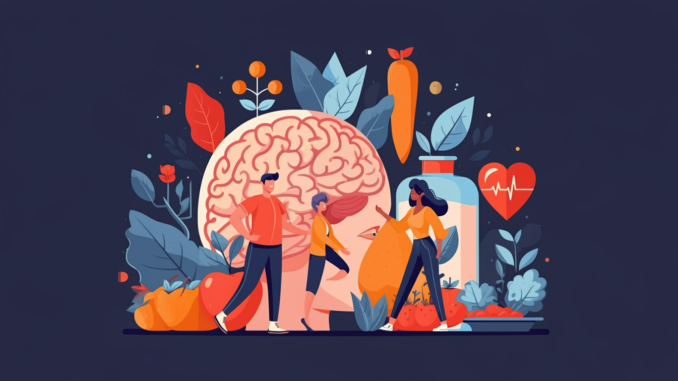
1. What is Biohacking?
Biohacking is the practice of using science, technology, and lifestyle modifications to enhance physical and mental performance. It involves everything from diet and sleep optimization to advanced techniques like neurofeedback and gene editing. Biohackers strive to take control of their biology through self-experimentation, data tracking, and evidence-based interventions.
Types of Biohacking:
- Nutritional Biohacking – Using specific diets, supplements, and fasting strategies to improve metabolism and brain function.
- Neurohacking – Enhancing cognitive abilities with meditation, nootropics, and brain-training exercises.
- Sleep Optimization – Using tools like blue-light blockers, sound therapy, and sleep tracking for restorative rest.
- Genetic Biohacking – Modifying DNA using CRISPR technology (a controversial and advanced approach).
- DIY Biology – Conducting personal experiments outside of traditional medical research settings.
2. Nutritional Biohacking: Eating for Peak Performance
Food is fuel, but biohackers go beyond conventional nutrition by focusing on foods that optimize longevity, mental clarity, and physical health.
Top Biohacking Diets:
- Ketogenic Diet: Low-carb, high-fat eating plan that enhances energy, mental focus, and fat burning.
- Intermittent Fasting: Restricting eating windows to boost metabolism, improve insulin sensitivity, and trigger cellular repair.
- Paleo Diet: Eating whole, unprocessed foods similar to what early humans consumed.
- Carnivore Diet: A controversial all-meat diet aimed at reducing inflammation and increasing testosterone.
Superfoods and Supplements for Biohackers:
- MCT Oil – Provides rapid energy and boosts cognitive function.
- Lion’s Mane Mushroom – Supports brain health and neurogenesis.
- L-Theanine + Caffeine – Enhances focus while reducing caffeine-induced jitters.
- Adaptogens (Ashwagandha, Rhodiola Rosea) – Helps the body resist stress and balance hormones.
3. Optimizing Sleep for Maximum Recovery
Sleep is essential for brain detoxification, memory consolidation, and physical repair. Biohackers use technology and lifestyle changes to improve sleep quality.
Sleep Hacks:
- Blue Light Blocking Glasses – Reduces eye strain and helps maintain melatonin production.
- Cold Exposure – Sleeping in a cooler room (65°F or 18°C) enhances deep sleep.
- Weighted Blankets – Helps reduce anxiety and improve sleep quality.
- Smart Sleep Trackers – Wearables like the Oura Ring or WHOOP provide real-time sleep data.
4. Cognitive Biohacking: Unlocking Mental Potential
Mental clarity, memory, and focus can be enhanced through cognitive biohacking techniques.
Brain Optimization Strategies:
- Nootropics – Smart drugs or supplements that enhance memory, creativity, and motivation. Popular options include Modafinil, Alpha-GPC, and Bacopa Monnieri.
- Neurofeedback – Brainwave training to improve focus, reduce anxiety, and boost performance.
- Transcranial Direct Current Stimulation (tDCS) – A technique that stimulates neurons using mild electrical currents.
- Mindfulness Meditation – Scientifically proven to increase gray matter and improve emotional resilience.
5. Biohacking Exercise: Training Smarter, Not Harder
Optimizing fitness through advanced techniques can accelerate results while reducing workout time.
Best Biohacking Workout Strategies:
- High-Intensity Interval Training (HIIT) – Maximizes fat burning and cardiovascular health in minimal time.
- Blood Flow Restriction Training – Enhances muscle growth using lightweight resistance.
- Cold Therapy (Cryotherapy, Ice Baths) – Reduces inflammation and accelerates muscle recovery.
- Vibration Training – Whole-body vibration platforms improve circulation and muscle activation.
6. The Role of Technology in Biohacking
The rise of wearable tech has made self-experimentation easier than ever.
Top Biohacking Gadgets:
- Oura Ring – Tracks sleep, recovery, and readiness.
- WHOOP Strap – Monitors strain, recovery, and heart rate variability (HRV).
- Continuous Glucose Monitors (CGM) – Helps manage blood sugar for better energy and fat loss.
- Infrared Saunas – Supports detoxification, relaxation, and muscle recovery.
7. DIY Biohacking: Extreme Self-Experimentation
Some biohackers push the boundaries with cutting-edge, controversial methods.
Extreme Biohacks:
- Gene Editing (CRISPR) – DIY genetic modifications to enhance performance.
- Young Blood Transfusions – Rejuvenation therapy involving plasma from younger donors.
- Implanted RFID Chips – Used for security access, digital payments, or health tracking.
- Stem Cell Therapy – Promotes healing and anti-aging.
8. Potential Risks and Ethical Concerns
While biohacking offers promising benefits, it also comes with ethical and safety concerns.
Key Considerations:
- Unregulated Supplements – Many nootropics lack long-term research.
- Overstimulation Risks – Excessive use of cognitive enhancers can lead to burnout.
- Ethical Dilemmas – Gene editing and human augmentation raise ethical concerns.
- Legal Issues – Some biohacking practices may violate medical regulations.
9. Biohacking for Longevity: Extending Life and Youth
Many biohackers focus on slowing aging and extending lifespan.
Anti-Aging Biohacks:
- Rapamycin – A drug that extends lifespan in animal studies.
- Autophagy Activation (Fasting, Exercise) – Cellular self-cleaning to remove damaged cells.
- NAD+ Supplements (NMN, NR) – Supports mitochondrial health and DNA repair.
- Hyperbaric Oxygen Therapy (HBOT) – Improves cellular regeneration.
10. Conclusion: The Future of Biohacking
Biohacking is revolutionizing health optimization, offering powerful tools to enhance performance, longevity, and well-being. Whether through simple lifestyle changes or advanced technology, biohacking empowers individuals to take control of their biology and push human limits.
Call to Action: Start Small & Track Progress
Begin with simple bio hacks like improving sleep, intermittent fasting, or meditation. Use a health-tracking app to measure progress and refine your approach over time.

Leave a Reply